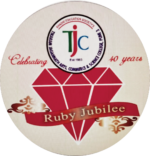Course Outcome
M.Sc. (SEM III & SEM IV) According to N.E.P.
SEMESTER III
CS-601-MJ :Software Architecture and Design Pattern
CO1: Understand the UML basics, RUP and basics of software architecture
CO2: Acknowledge the traits of patterns that make them helpful in solving real-world issues. CO3: Able to use specific frameworks as per applications need.
CO4: Design java application using design pattern techniques.
CS-602-MJ: Machine Learning
CO1: To introduce knowledge of Machine Learning. CO2: To demonstrate all categories of Machine learning algorithms along with implementation. CO3: To compose real time application using machine learning algorithms. CO4: Analyze the concept of neural networks for learning linear and non-linear activation functions
CS-603-MJ :Internet of Things
CO1: Demonstrate basic concepts, principles and challenges in IoT.
CO2: Illustrate functioning of hardware devices and sensors used for IoT.
CO3: Analyze network communication aspects and protocols used in IoT.
CO4: Apply IoT for developing real life applications using Ardunio programming. CO5: To develop IoT infrastructure for popular applications.
CS-604-MJP :Lab Course on CS-601-MJ and CS-603-MJ (Software Architecture & Design Pattern and Internet of Things)
CO1: Design java application using design pattern techniques.
CO2: Apply IoT for developing real life applications using Ardunio programming. CO3: To develop IoT infrastructure for popular applications.
CS-605-MJP:Lab course on CS-602-MJ (Machine Learning)
CO1: To Get Hands on machine learning model.
CO2: Able to estimate Machine Learning models efficiency using suitable metrics.
CO3: Able to analysis and make decision for critical problems.
CO4: Able to handle structured, unstructured as well as semi-structured data.
CO5: Implement ideas to design and develop Deep learning solutions for complex problems.
CS-610-MJ : Full Stack Development-II
CO1: Learn In Depth understanding of Angular framework and State Management. CO2: Learn using typescript effectively in Angular framework.
CO3: Learn in-depth knowledge of NodeJS and Express JS.
CO4: Learn advance concepts in MongoDB.
CO5: Learn best practices to be followed when creating industry grade applications.
CS-611-MJP:Lab course on CS-610-MJ (Full Stack Development-II)
CO1: Learn In Depth understanding of Angular framework and State Management. CO2: Learn using typescript effectively in Angular framework.
CO3: Learn in-depth knowledge of NodeJS and Express JS.
CO4: Learn advance concepts in MongoDB.
CO5: Learn best practices to be followed when creating industry grade applications.
CS-612-MJ : DevOps Fundamentals
CO1: Apply DevOps principles for collaboration, automation, and continuous improvement.
CO2: Master version control (e.g., Git) and implement effective branching strategies.
CO3: Design and optimize CI/CD pipelines for automated and streamlined software delivery.
CO4: Utilize containerization (e.g., Docker) and orchestration tools (e.g., Kubernetes) for scalable deployments .
CO5: Implement monitoring, logging, and security practices throughout the DevOps lifecycle.
CO6: Foster effective collaboration through tools like ChatOps within cross-functional teams. CO7: Develop skills in incident response, troubleshooting, and problem resolution.
CS-613-MJP : Lab Course on CS-612-MJ (DevOps Fundamentals)
CO1: Demonstrate the ability to practically implement DevOps principles through hands-on assignments in version control, CI/CD, IaC, and containerization
CO2: Develop problem-solving skills by resolving simulated incidents, enhancing the understanding of incident response and troubleshooting procedures.
CO3: Attain a comprehensive skill set covering automation, scripting, collaboration tools, and cultural transformation
CO4: Empowering participants to contribute to a collaborative and efficient DevOps culture.
CS-614 MJ :Soft Computing
CO1: Learn about soft computing techniques and their applications
CO2: Analyze various neural network architectures and perceptrons
CO3: Define the fuzzy systems
CO4: Analyze the genetic algorithms and their applications.
CS-615-MJP: Practical on CS-614-MJ (Soft Computing)
CO1: Independently conduct research in a specific area of computer science
CO2: Apply appropriate research methodologies to address research problems.
CO3: Analyze and synthesize information gathered from literature reviews, experiments, or data analysis
CO4: Develop innovative solutions to research problems within the scope of computer science.
CO5: Effectively present research findings through written reports, oral presentations, or poster presentations.
CO6: Publish research work in reputable journals, present at conferences or in recognized project competitions.
CS-631-RP : Research Work-I
CO1: Independently conduct research in a specific area of computer science
CO2: Apply appropriate research methodologies to address research problems.
SEMESTER IV
CS-651-MJP : Full Time Industrial Training (IT)
CO1: Apply theoretical concepts learned in the classroom to solve practical problems
encountered in an industrial setting.
CO2: Demonstrate proficiency in using industry-standard tools, technologies, and
methodologies relevant to their area of specialization.
CO3: Apply analytical and problem-solving skills to address challenges encountered during the
industrial training
CO4: Collaborate effectively with team members to achieve project goals and objectives.
CO5: Manage time and resources efficiently to complete assigned tasks and projects within the
stipulated timeframe.
CO6: Prepare a comprehensive report documenting their experience, including project details,
learnings, and reflections.
CS-681-RP : Research Work-II
CO1: Independently conduct research in a specific area of computer science
CO2: Apply appropriate research methodologies to address research problems.
CO3: Analyze and synthesize information gathered from literature reviews, experiments, or data analysis
CO4: Develop innovative solutions to research problems within the scope of computer science. CO5: Effectively present research findings through written reports, oral presentations, or poster presentations.
CO6: Publish research work in reputable journals, present at conferences
